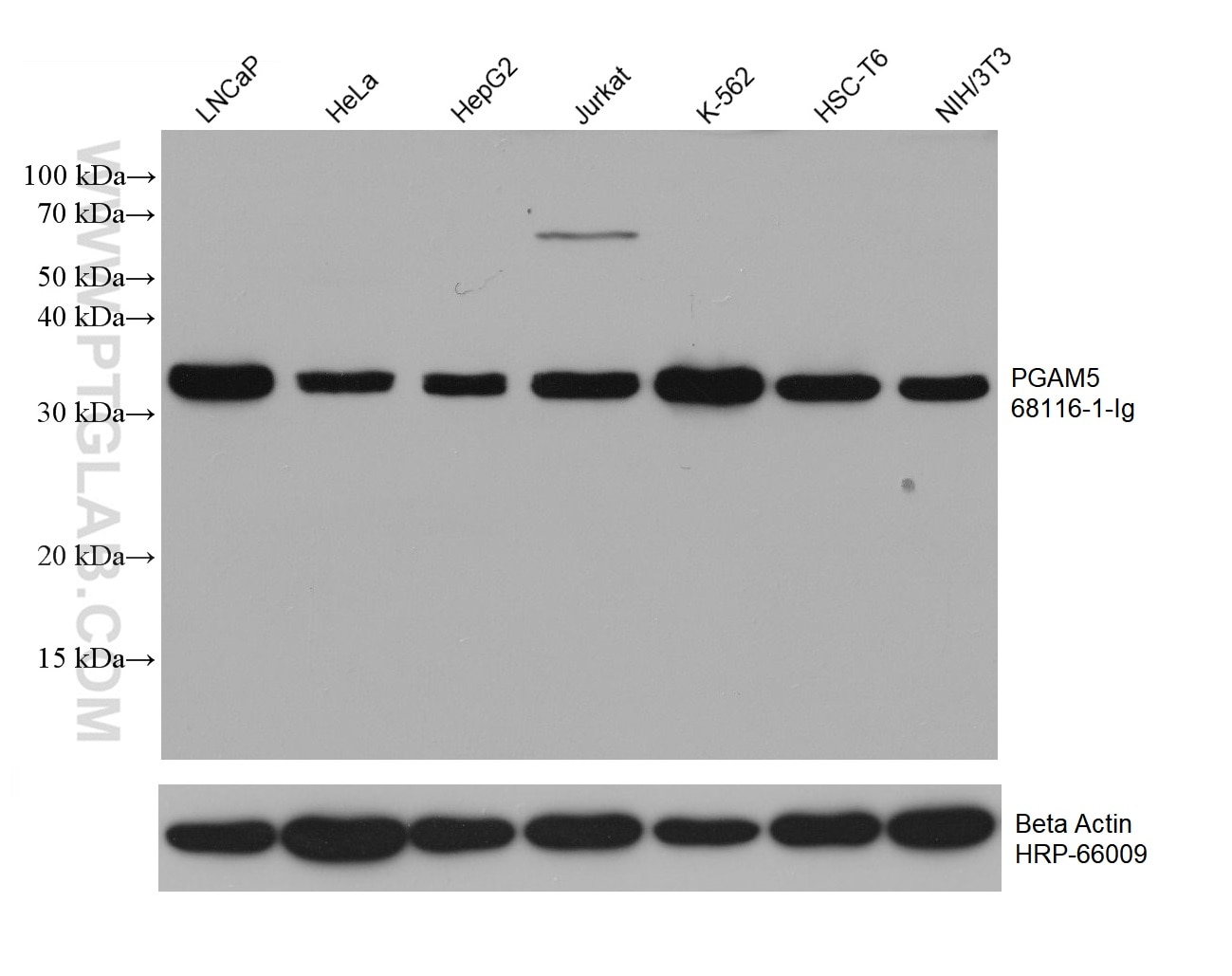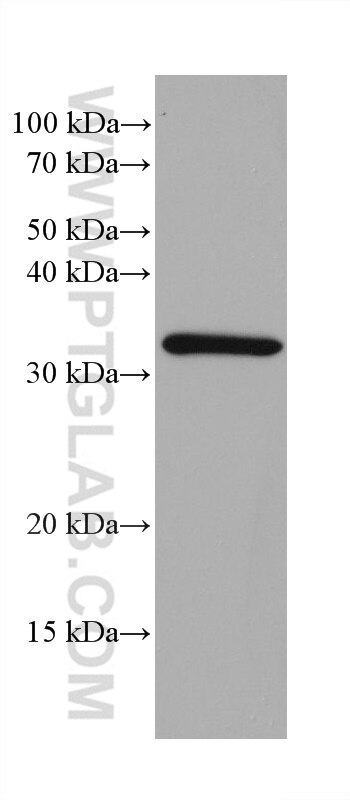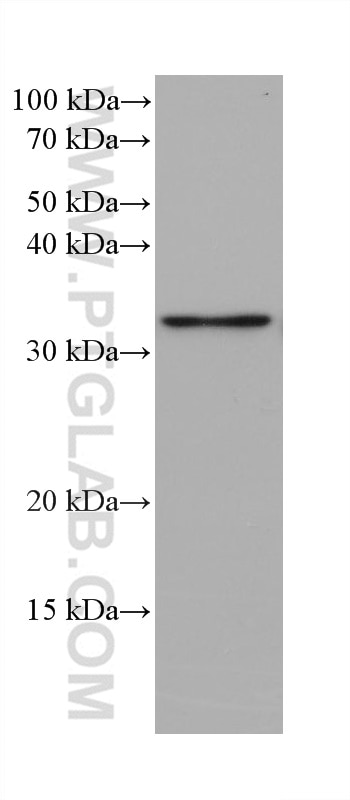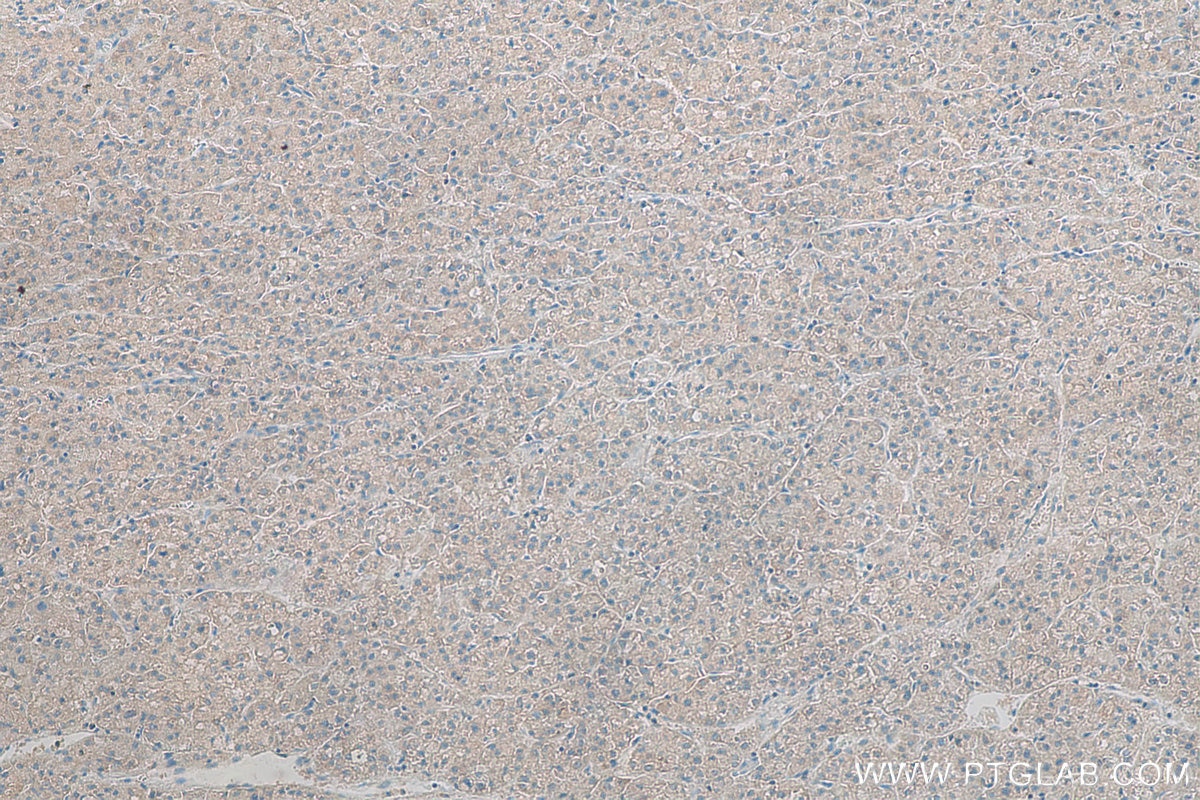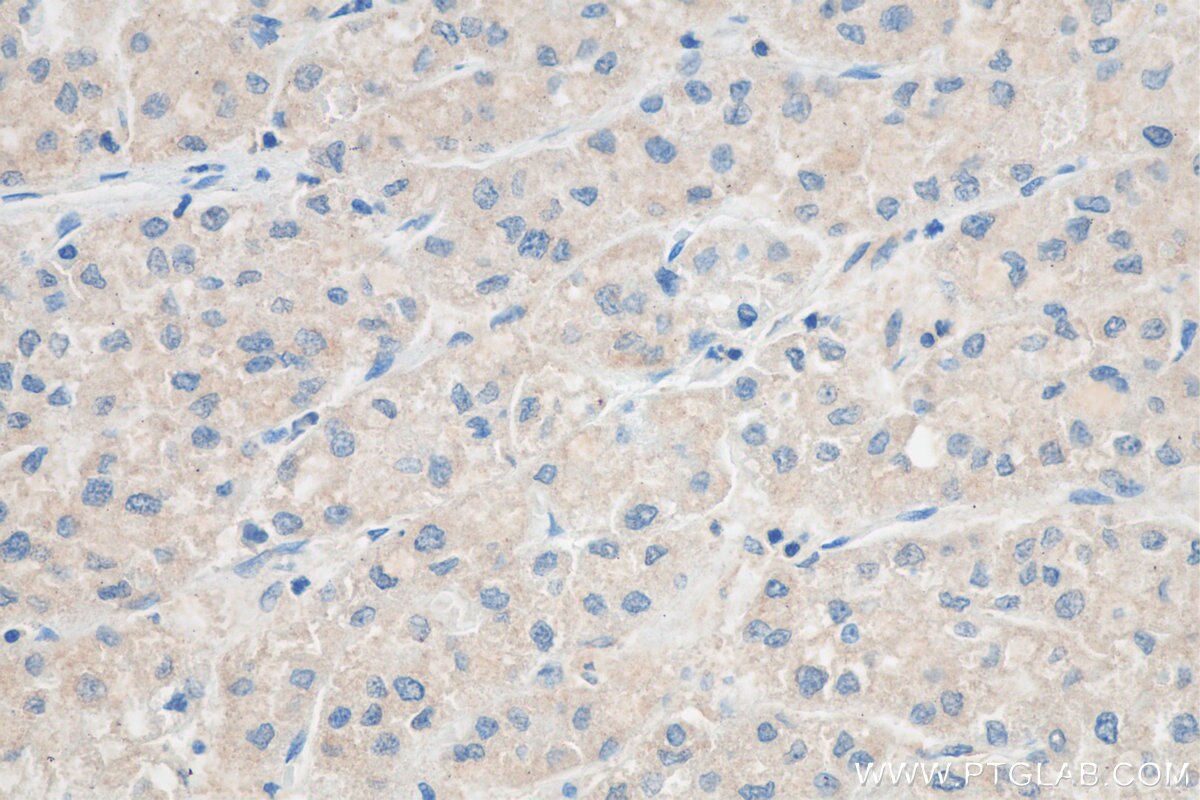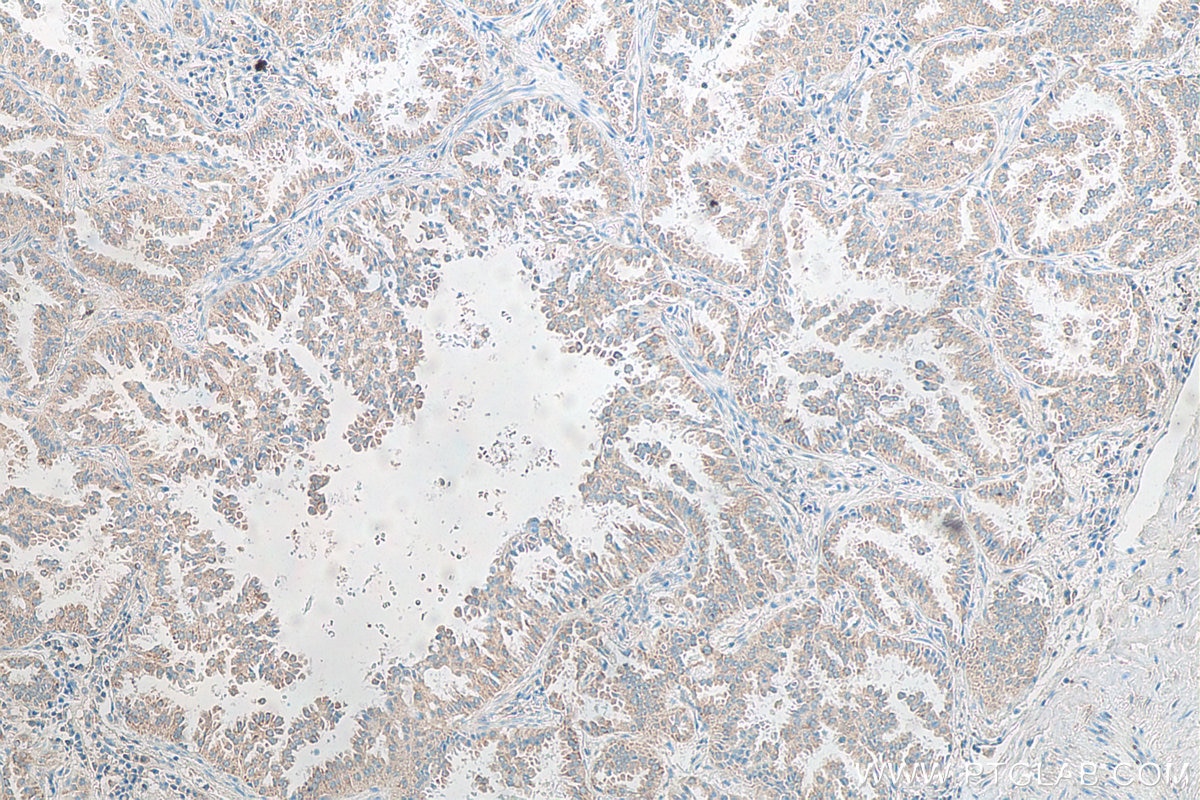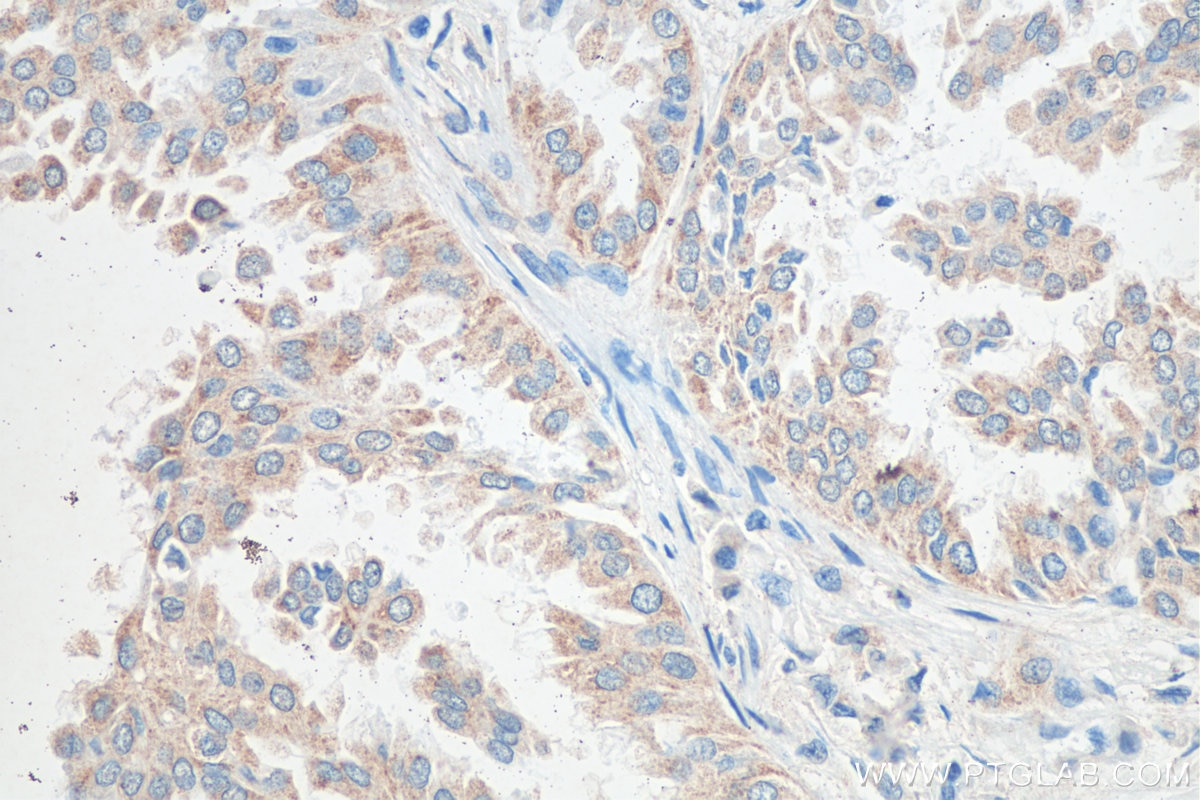PGAM5 Monoklonaler Antikörper
PGAM5 Monoklonal Antikörper für IHC, WB, ELISA
Wirt / Isotyp
Maus / IgG1
Getestete Reaktivität
Hausschwein, human, Kaninchen, Maus, Ratte
Anwendung
WB, IHC, ELISA
Konjugation
Unkonjugiert
CloneNo.
1C8B9
Kat-Nr. : 68116-1-Ig
Synonyme
Galerie der Validierungsdaten
Geprüfte Anwendungen
| Erfolgreiche Detektion in WB | LNCaP-Zellen, Hausschwein-Hirngewebe, HeLa-Zellen, HepG2-Zellen, Jurkat-Zellen, K-562-Zellen, Kaninchenhirngewebe, NIH/3T3-Zellen |
| Erfolgreiche Detektion in IHC | humanes Leberkarzinomgewebe, humanes Lungenkarzinomgewebe Hinweis: Antigendemaskierung mit TE-Puffer pH 9,0 empfohlen. (*) Wahlweise kann die Antigendemaskierung auch mit Citratpuffer pH 6,0 erfolgen. |
Empfohlene Verdünnung
| Anwendung | Verdünnung |
|---|---|
| Western Blot (WB) | WB : 1:5000-1:50000 |
| Immunhistochemie (IHC) | IHC : 1:1000-1:4000 |
| It is recommended that this reagent should be titrated in each testing system to obtain optimal results. | |
| Sample-dependent, check data in validation data gallery | |
Produktinformation
68116-1-Ig bindet in WB, IHC, ELISA PGAM5 und zeigt Reaktivität mit Hausschwein, human, Kaninchen, Maus, Ratten
| Getestete Reaktivität | Hausschwein, human, Kaninchen, Maus, Ratte |
| Wirt / Isotyp | Maus / IgG1 |
| Klonalität | Monoklonal |
| Typ | Antikörper |
| Immunogen | PGAM5 fusion protein Ag28195 |
| Vollständiger Name | phosphoglycerate mutase family member 5 |
| Berechnetes Molekulargewicht | 32 kDa |
| Beobachtetes Molekulargewicht | 32 kDa |
| GenBank-Zugangsnummer | BC008196 |
| Gene symbol | PGAM5 |
| Gene ID (NCBI) | 192111 |
| Konjugation | Unkonjugiert |
| Form | Liquid |
| Reinigungsmethode | Protein-G-Reinigung |
| Lagerungspuffer | PBS mit 0.02% Natriumazid und 50% Glycerin pH 7.3. |
| Lagerungsbedingungen | Bei -20°C lagern. Nach dem Versand ein Jahr lang stabil Aliquotieren ist bei -20oC Lagerung nicht notwendig. 20ul Größen enthalten 0,1% BSA. |
Hintergrundinformationen
Phosphoglycerate mutase 5 (PGAM5) is a mitochondrial Serine (Ser)/Threonine (Thr) phosphatase normally located in the inner mitochondrial membrane. Upon mitochondrial dysfunction, PGAM5 recruits and dephosphorylates Drp1 at Ser-637, triggers its GTPase activity and promotes mitochondrial fission. PGAM5 regulates mitophagy by stabilizing PINK1 under stress conditions, which recruits E3 ubiquitin ligase PARKIN for degradation of the damaged mitochondria. PGAM5 can be cleaved and released to the cytoplasm through PARKIN, which activates Wnt signaling and induces mitochondrial biogenesis (PMID: 32439975). PGAM5 has 2 isoforms with the molecular mass of 28 and 32 kDa.
Protokolle
| Produktspezifische Protokolle | |
|---|---|
| WB protocol for PGAM5 antibody 68116-1-Ig | Protokoll herunterladen |
| IHC protocol for PGAM5 antibody 68116-1-Ig | Protokoll herunterladen |
| Standard-Protokolle | |
|---|---|
| Klicken Sie hier, um unsere Standardprotokolle anzuzeigen |
